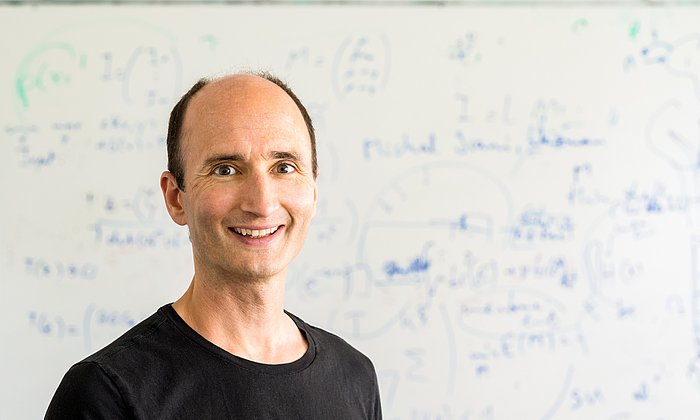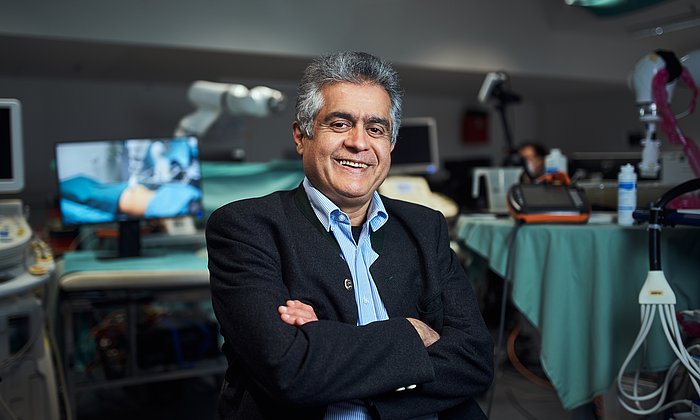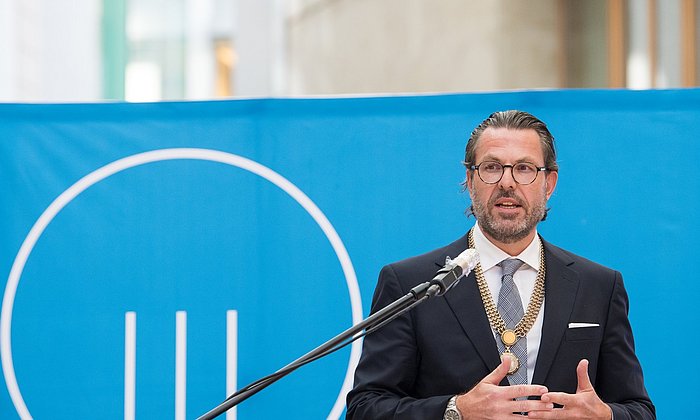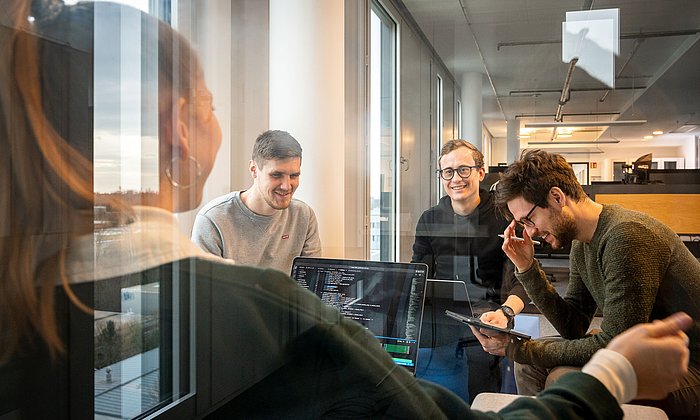Artificial intelligence: Current research and future visions
Munich AI Day brings together leaders in the field
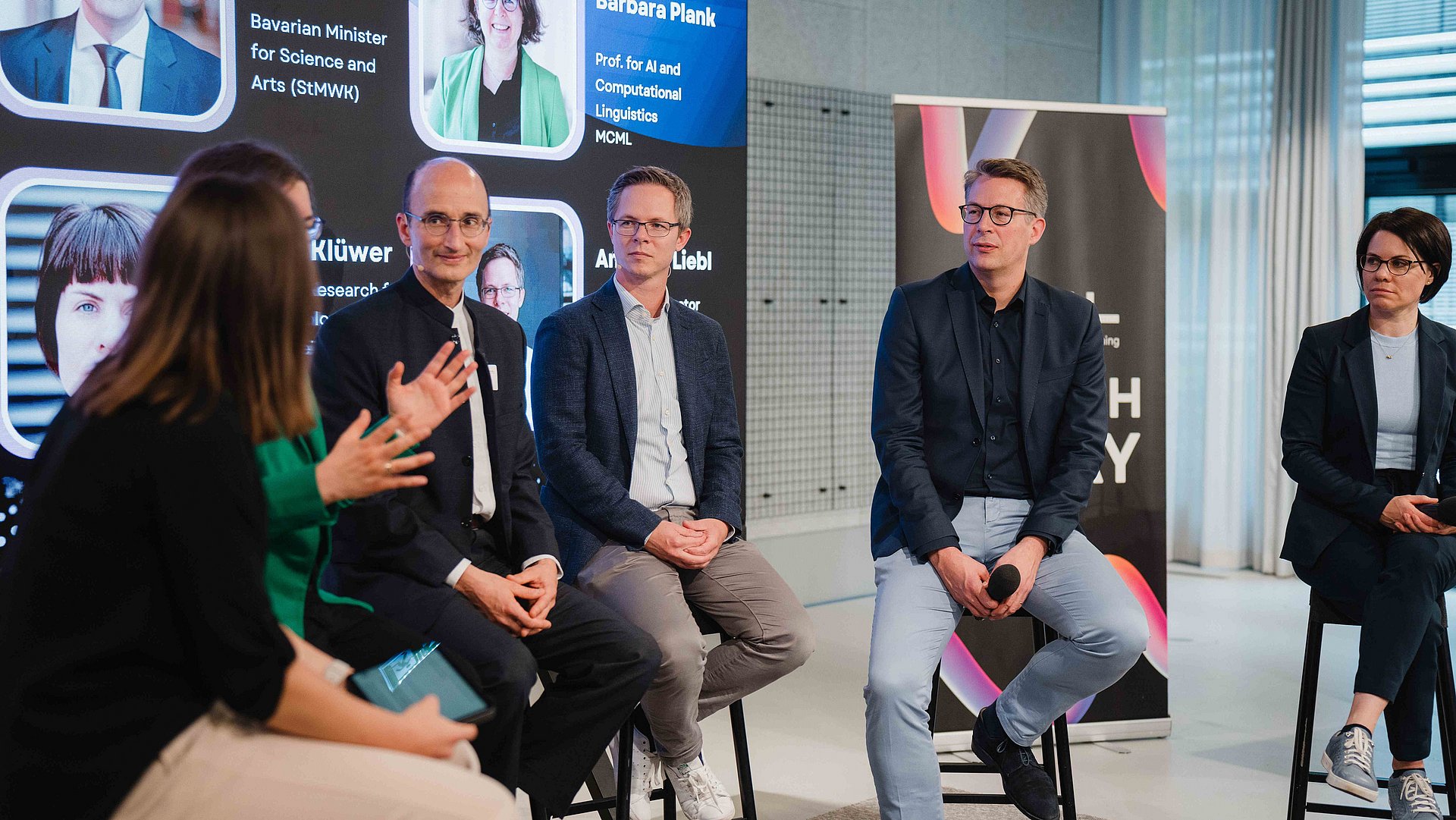
How can we make advances in the fundamentals of AI? How can we utilize AI in applications relevant to society’s needs, from medicine to Earth observation to autonomous driving? And in doing so, how can we ensure that AI systems are safe and reliable? Scientists addressed these and other questions at the Munich AI Day. The event aimed to exchange knowledge and ideas, offer presentations on current developments and research results and facilitate networking. Along with researchers, the AI Day brought together decision-makers from politics, business and the media.
Strengthening AI research in Bavaria
Markus Blume, Bavarian Minister of Science and Arts, said: "Premiere for an important platform: ambition meets passion at Munich AI Day. One thing is clear: the biggest risk with AI is not being there. We have decided: We want to shape the key technology of the future ourselves according to our values. This is the only way to achieve technological and economic sovereignty in the future. We are setting the course with our Bavarian AI offensive and the High-Tech Agenda: Over 130 additional AI professorships, the establishment of our own AI computing infrastructure, the further development of the TU Nuremberg into an AI university, excellent research institutions as well as enthusiastic companies and start-ups with an AI focus. The MCML is our Bavarian think tank for AI - thank you very much for your important work!"
Prof. Gerhard Kramer, Vice President for Research and Innovation at TUM, said: “The Munich AI Day showcases what the Munich ecosystem offers in the field of artificial intelligence. The event informs participants of the latest developments and connects them to the many world-class researchers working here.”
Prof. Francesca Biagini, LMU Vice President for International Affairs and Diversity, said: “Artificial intelligence will increasingly shape our society in the future. I’m delighted that, with the Munich AI Day, our scientists are creating an outstanding platform to exchange the latest insights and drive innovations. As one of six German AI centers of excellence, the MCML is assuming an important role in the national and global networking of leading-edge AI research.”
Discussions and insights from the world of research
A highlight of the Munich AI Day was the panel discussion on the future of AI, featuring Bavarian science minister Markus Blume, Tina Klüwer, department director at the Federal Ministry for Education and Research, and Prof. Daniel Cremers, a member of the MCML Board of Directors, among others. The session addressed such topics as the acceptance of AI developments in society. High-profile experts from academia and industry also gave keynote addresses on current developments, trends and future perspectives in AI, including Michal Irani, Professor at the Weizmann Institute of Science. She talked about how AI can use brain scans to reconstruct images previously shown to a person.
Competencies of the two excellence universities
The event highlighted the broad spectrum of research conducted at the MCML in the international and application-driven context and inspired conversations between researchers and industry representatives. The MCML has established itself as one of the largest and most prominent AI research centers in the European ecosystem and, over the past year, has succeeded in forging ties to prominent researchers from Germany and abroad. MCML researchers have gained international attention for AI-related work in such areas as generative AI, computer vision, ethics and medicine.
The MCML is a joint initiative of TUM and LMU and is a permanent research facility funded by the German government and the Bavarian State Government. It is an integral part of the German AI strategy and Hightech Agenda Bavaria.
Artificial Intelligence
AI applications are already changing the world of work, research and everyday life. We are helping to shape this technological progress: Our researchers are developing new methods and applications of AI across disciplines.
- Prof. Daniel Cremers is a core member of TUM’s Munich Data Science Institute (MDSI).
Technical University of Munich
Corporate Communications Center
- Julia Rinner
- presse@tum.de
- Teamwebsite

